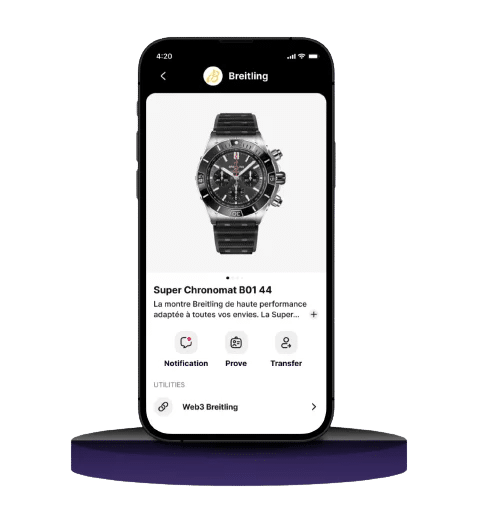Arianee, the French Web3 company, is rolling out V2 with a raft of new tools based on interoperability, simplicity and widespread adoption. Thanks to the implementation of higher-level smart contracts, Arianee now enables brands to personalise their loyalty programmes and the digital passports of their products in the best possible way.
Arianee, a solution to bring brands closer to their customers
French company Arianee, which works to support businesses in their transition to Web3, has just unveiled a new version of its protocol. In 2 words, this upgrade aims to take Arianee’s tools to the next level by focusing on simplicity, interoperability and plurality.
As a reminder, the solutions developed by Arianee aim to use Web3 tools to bring brands closer to their customers without any intermediaries, in particular through digital passports accompanying physical products. On the one hand, this makes it possible to authenticate durable and valuable products, time-stamp their sale for customers and facilitate their resale, but it also makes it possible to set up an exclusive loyalty programme for the brand, all thanks to the blockchain.

Arianee has already won over some heavyweights in the luxury goods industry, including Panerai, Moncler, Lacoste, Château Pape Clément, Galeries Lafayette and Breitling, to name but a few. Throughout its evolution, since its creation in 2018 – and therefore before the monumental momentum experienced by the NFT in 2021 – Arianee has been committed to offering an innovative and unique Web3 solution, but always with a view to making it accessible to all.
As a result, the end customers of brands that have adopted Arianee do not have to carry out any technical manipulations. What’s more, thanks to asynchronous transfers, Arianee allows anyone to exchange their NFT (relating to the original product) via a simple link or an automatically generated QR code, without the need for digital currencies or a digital wallet. And thanks to its “Recover” function, Arianee enables brands to recover their NFT following a potential customer withdrawal, all without friction, additional costs or technical complications.
In addition, the Arianee Privacy Gateway solution allows brands to issue NFTs whose content is accessible only to the owners, thus guaranteeing maximum confidentiality.
V2 to accommodate the next wave of NFT adoption
Until now, Arianee has been used to create NFTs based on the ERC-721 (Ethereum) standard for the purpose of generating digital passports or membership cards, but while this solution had its advantages, it also had a certain limitation.
The Arianee protocol was natively “single-collection”, with all its NFTs grouped together without any collection differentiation. Today, however, as a result of the democratisation of non-fungible tokens in recent years, the collection principle has become the norm, making it possible to create value for NFTs by making them visible in a specific way on marketplaces.
However, with V2, Arianee now enables brands to take the personalisation of loyalty programmes or authentication systems to the next level by implementing smart contracts with dedicated functionalities for each use case.
This enables brands to develop, for example, exchangeable loyalty tokens, which can be presented as genuine collections of NFTs on the most widely used marketplaces such as OpenSea, potentially having their own floor price and becoming de facto digital collectibles.

This evolution of Arianee also enables it to support soulbound tokens natively, i.e. NFTs that are non-transferable, revocable and publicly visible. This solution enables brands to forge an absolutely unique bond with their customers, taking the principle of exclusivity to the extreme.
In addition, Arianee’s open source protocol works with its own ARIA20 token, enabling developers to use the full range of functionalities autonomously, in particular the implementation of the messaging function enabling communication with the digital wallet containing a digital passport, for example, without requiring any personal data from customers.
It should be noted that ARIA20 tokens are not burned and are redistributed via the Arianee protocol to the various technical operators in order to create the conditions for the creation of an ecosystem in which the interests of all contributors are aligned. Finally, brands can define their own smart contract via a simplified interface (similar to OpenZeppelin) to configure and deploy the most appropriate solution for their needs.
